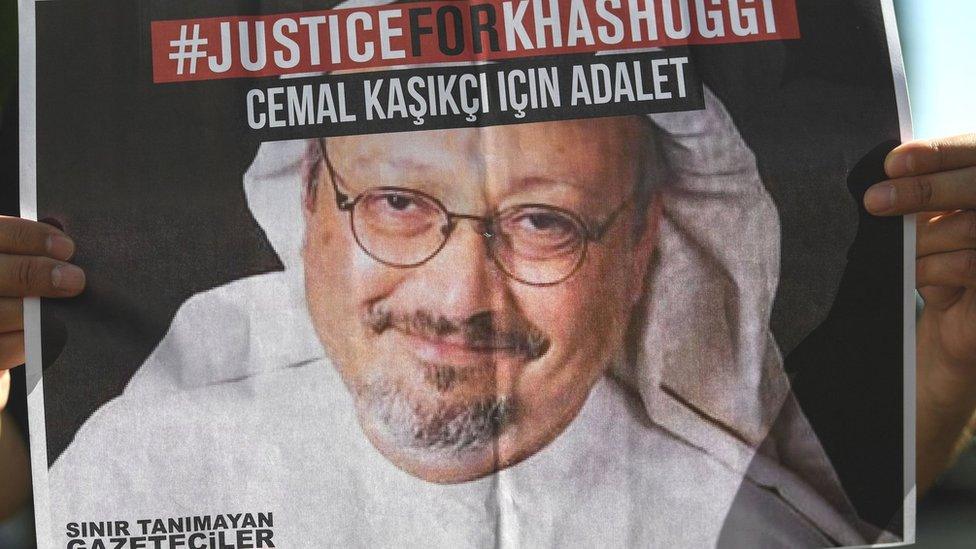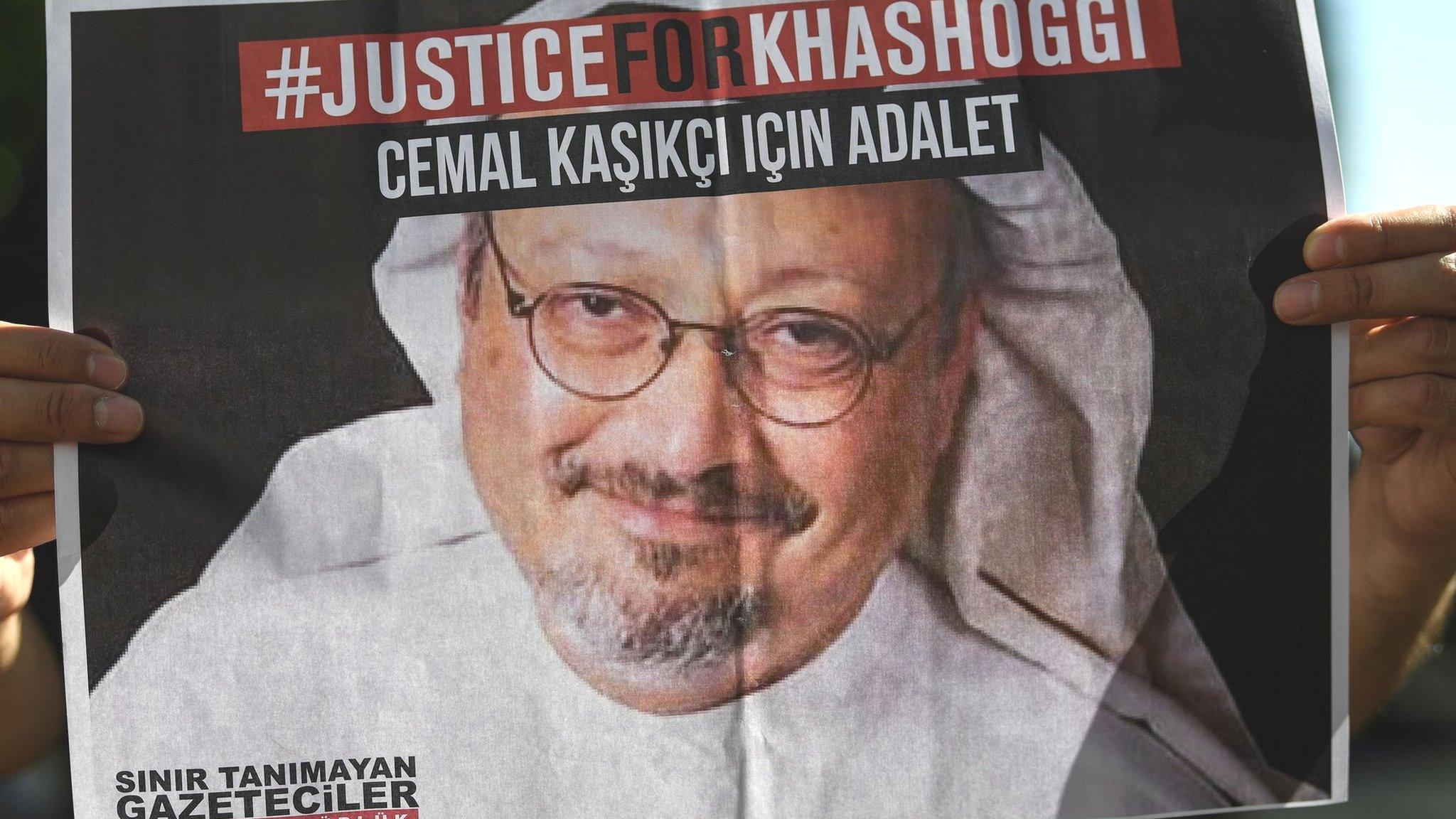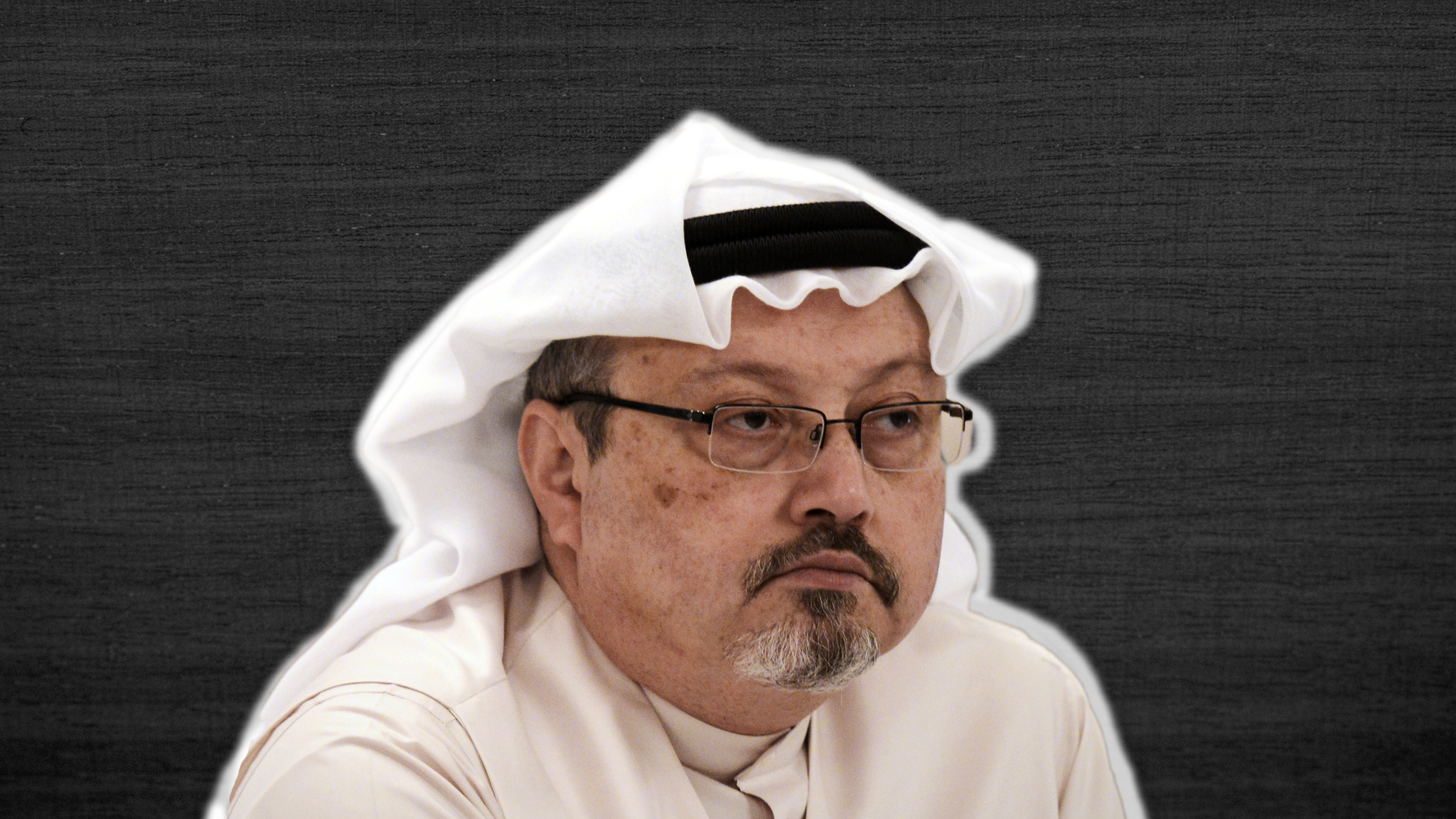Khashoggi: Anger as Turkish court halts murder trial
- Published

Jamal Khashoggi was murdered by a team of Saudi agents in Istanbul in 2018
The trial in Turkey of 26 Saudi nationals accused over the notorious murder of dissident Jamal Khashoggi in Istanbul in 2018 has been halted.
A judge said the case would now be handed over to Saudi Arabia, which had refused to extradite the suspects.
Khashoggi's fiancee, Hatice Cengiz, said she would fight on.
The Washington Post journalist was killed inside the Saudi consulate after being lured there. His murder by Saudi agents sparked worldwide outrage.
A Saudi court convicted eight unnamed people over the murder in 2019.
Thursday's ruling comes after Turkey's justice minister agreed to a prosecutor's request to stop the trial on the grounds that it was impeded by the absence of the defendants. The prosecutor said Saudi judicial authorities had promised to evaluate the accusations against them.
The move however has been lambasted as a whitewash by human rights campaigners.
Amnesty International's Turkey official Milena Buyum said it was an "appalling and clearly political decision".
Allow X content?
This article contains content provided by X. We ask for your permission before anything is loaded, as they may be using cookies and other technologies. You may want to read X’s cookie policy, external and privacy policy, external before accepting. To view this content choose ‘accept and continue’.
Outside the court, Ms Cengiz, Khashoggi's fiancee, told journalists she would appeal, AFP news agency reported.
Allow X content?
This article contains content provided by X. We ask for your permission before anything is loaded, as they may be using cookies and other technologies. You may want to read X’s cookie policy, external and privacy policy, external before accepting. To view this content choose ‘accept and continue’.
The development comes as Turkey seeks to repair its relations with Saudi Arabia.
Ties between the two regional powers deteriorated significantly following the murder and led to an unofficial Saudi boycott of Turkish exports.
Jamal Khashoggi, a critic of Saudi Crown Prince Mohammed bin Salman, was last seen entering the Saudi consulate in Istanbul on 2 October 2018, where he had gone to get papers needed to marry his fiancee.
Then-UN special rapporteur Agnes Callamard concluded that he was "brutally slain" inside the building by a 15-strong team of Saudi agents sent from Riyadh, and that his body was dismembered. She made that judgement after listening to purported audio recordings of conversations inside the consulate made by Turkish intelligence.
British barrister Helena Kennedy and UN special rapporteur Agnes Callamard describe the Jamal Khashoggi secret tapes
Turkish President Recep Tayyip Erdogan alleged that Khashoggi was "killed in cold blood by a death squad" sent from Riyadh, and said it had "been established that his murder was premeditated".
US intelligence agencies concluded that the crown prince, Saudi Arabia's de facto ruler, had approved an operation to capture or kill Khashoggi.
The prince denied playing any role and Saudi prosecutors blamed "rogue" agents.
A year after the killing, a Saudi court found five people guilty of directly participating in the killing and handed them death sentences that were later commuted to 20-year prison terms, while three others were jailed for seven to 10 years for covering up the crime.
Turkey rejected the outcome as "scandalous" and for almost two years a court in Istanbul had been trying 26 Saudi officials in absentia on charges of premeditated murder or destroying evidence.
Related topics
- Published31 March 2022

- Published24 February 2021

- Published25 October 2021
